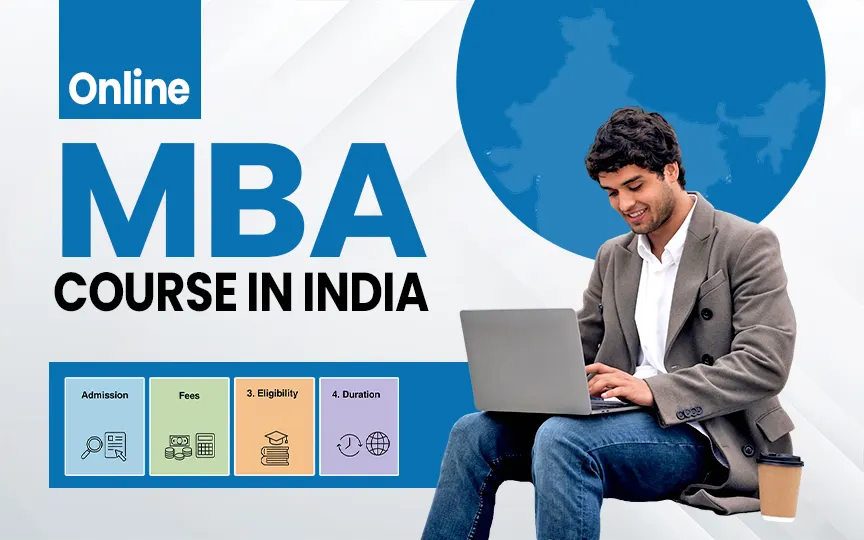The world of education is constantly evolving, and one of the most significant shifts has been the rise of online degree programs. No longer a niche option, online education has become a mainstream alternative to traditional on-campus learning, offering flexibility and accessibility to students across India and the globe. But with so many options available, how do you decide between pursuing an online degree from an online university in India or sticking with a traditional degree? This blog post will delve into the pros and cons of each, helping you make an informed decision about your academic future.
Traditional Degrees: The Established Path
Traditional degrees, earned through attending physical classes on a university campus, have been the cornerstone of higher education for centuries. They offer a structured learning environment with face-to-face interaction with professors and peers.
Advantages of Traditional Degrees:
- Structured Learning: A fixed schedule and in-person classes can provide a sense of routine and accountability, which benefits some learners.
- Campus Experience: Immersion in campus life, including clubs, societies, and networking events, offers a well-rounded college experience.
- Face-to-Face Interaction: Direct interaction with professors and classmates can facilitate deeper understanding and richer discussions.
- Reputation and Recognition: While online degrees are gaining traction, traditional degrees from established universities still hold significant weight in certain industries.
Disadvantages of Traditional Degrees:
- Cost: Traditional degrees can be significantly more expensive, considering tuition fees, accommodation, travel, and other related expenses.
- Inflexibility: Fixed schedules and mandatory attendance can make it difficult for students with work or family commitments to pursue higher education.
- Location Constraints: Students are limited to universities located within commuting distance or those they can afford to relocate to.
Online Degree Programs: The Rise of Flexibility
The advent of online degree programs has transformed the landscape of education, providing students with the unprecedented opportunity to pursue their academic goals entirely over the Internet. This innovative format empowers learners to study at their own pace, making education accessible from virtually anywhere in the world, as long as they have a reliable internet connection. In India, a multitude of esteemed online universities now present a diverse array of online graduation courses, spanning everything from bachelor’s degrees to master’s and even doctoral programs. This flexibility not only caters to individual learning styles but also opens doors for those balancing professional commitments or personal responsibilities, making higher education more attainable than ever before.
Advantages of Online Degree Programs:
- Flexibility: Learn anytime, anywhere, fitting your studies around work, family, or other commitments. This is a major draw for working professionals looking to upskill or advance their careers.
- Cost-Effectiveness: Online degrees are often more affordable than traditional degrees, as they eliminate costs associated with campus facilities, accommodation, and travel.
- Accessibility: Online education opens doors to students who may not have access to traditional universities due to geographical limitations, disabilities, or other personal circumstances.
- Self-Paced Learning: Many online programs allow students to learn at their own pace, revisiting materials as needed and completing assignments at a comfortable speed.
- Wide Range of Programs: The availability of online graduation courses is constantly expanding, offering students a diverse selection of fields to choose from.
Disadvantages of Online Degree Programs:
- Self-Discipline Required: Online learning requires strong self-discipline and time management skills to stay on track and motivated.
- Limited Face-to-Face Interaction: While online platforms offer various communication tools, they can’t fully replicate the in-person interaction of a traditional classroom.
- Varying Quality: It’s crucial to choose accredited and reputable online universities to ensure the quality and recognition of your degree.
Making the Right Choice:
The best choice between online and traditional degrees depends on your individual circumstances, learning style, and career goals. Consider the following factors:
- Your Learning Style: Do you thrive in a structured classroom environment, or are you more self-directed and comfortable learning independently?
- Your Financial Situation: Evaluate the cost of both options and determine which one aligns with your budget.
- Your Schedule and Commitments: If you have work or family obligations, online learning may offer the flexibility you need.
- Your Career Goals: Research the requirements of your desired career path and whether employers value online degrees in your field.
Online University in India: A Growing Landscape
The number of quality online university in India is steadily increasing, offering a diverse range of online graduation courses. When choosing an online program, ensure the university is recognized by the University Grants Commission (UGC) or other relevant accreditation bodies. Look for institutions with a proven track record of academic excellence and student support.

Conclusion:
Both online and traditional degrees have their own unique advantages and disadvantages. The key is to carefully weigh these factors and choose the path that best suits your individual needs and aspirations.
As technology continues to advance and the acceptance of online learning grows, online degree programs are emerging as a compelling and practical choice for students both in India and across the globe. These programs offer a unique blend of flexibility and accessibility, allowing learners to pursue their academic goals from the comfort of their own homes or anywhere with an internet connection. By taking the time to thoroughly research the various options available, you can equip yourself with the knowledge needed to make a well-informed decision—ultimately paving the way for your academic achievements and future professional success.







